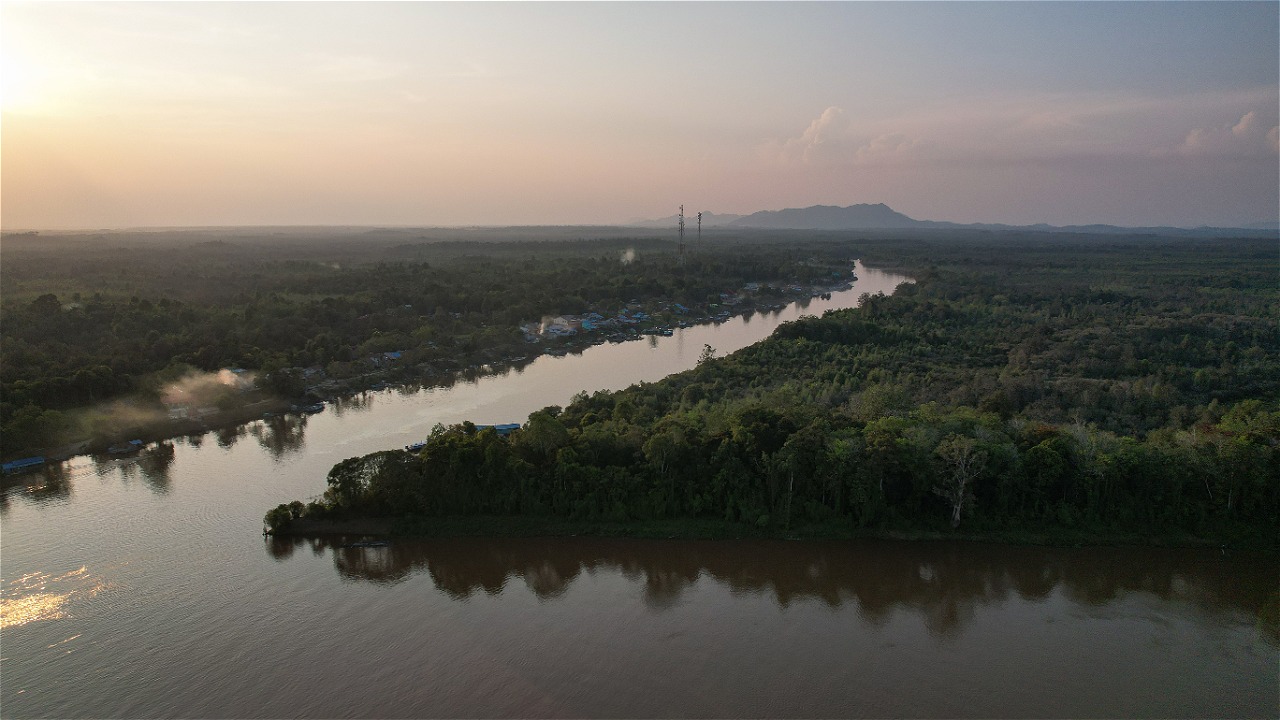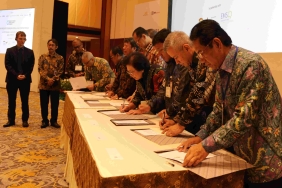SOUTHEAST MALUKU, PIONEER OF GREEN BUDGET TAGGING IN MALUKU
Rizal (Community Right Based Management Officer) and Dede Krishnadianty (Economic Instrument Specialist) WWF Indonesia - Inner Banda Arc Subseascape
WWF-Indonesia in collaboration with the Fiscal Policy Agency, Ministry of Finance, and Bappeda Maluku Tenggara, conducted Green Budget Tagging Training in Maluku Tenggara Regency on November 9-11. This activity was attended by WWF-Indonesia's key partners, namely, Bappeda, Regional Financial and Asset Management Office, Fisheries Office, Tourism Office, Public Works Office, Environment Office, Public Housing Office, Plantation and Agriculture Office, Education Office, Health Office, Village Community Empowerment Office and R&D Office.
"During the activity I received extraordinary additional knowledge, making it easier and faster to work in planning regional development in terms of budgeting," explained Rice Lefmanut, BAPPEDA Southeast Maluku, answering the questions asked.
Southeast Maluku as part of a cluster of island provinces, has not escaped the "Curse of Natural Resources" where economic improvement (growth) still depends on its natural resources. Dependence on the wealth of marine products and natural beauty as well as the vulnerability of the islands to the phenomenon of climate change convinces the need for development activities that are in harmony with environmental protection. The transfer of local government authority and affairs to the provinces complicates the issue of who is responsible for the obligation to protect the ecosystem and its sustainability.
Indonesia's economy depends on the extraction and exploitation of the earth. The depletion of natural raw materials has now reduced the sustainability of natural resources. Such as water, forests, minerals, biodiversity and marine ecology, and sea sand. If this exploitation continues, it can cause the function and carrying capacity of the environment to decline.
At the national level, the Indonesian government has developed a Green Development Planning and Budgeting Strategy (P3H) with the main objective of reducing Indonesia's vulnerability to climate change impacts and environmental risks and minimizing loss and damage to natural resources. The strategy uses the most effective economic policies and instruments and creates scenarios that show the level of resources that need to be made available for green development investments [1] (WWF ID, 2017).
Green Budget Tagging Practices
To ensure P3H can be implemented, Green Budget Tagging is needed to determine the amount of green development investment and encourage local governments to conduct planning studies and prepare green budgets. With the ratification of the Environmental Economic Instrument (IELH) with PP 46/2017 on November 10, 2017, it clarifies the urgency of mainstreaming green budgeting in the regions.
Dr. Joko Tri Haryanto, researcher at the Fiscal Policy Agency, Ministry of Finance, said that the theory of the natural resource curse can be avoided by carefully considering the development planning process to align environmental protection efforts with economic growth.
The provision of material on Green Economy Mainstreaming in development planning and the importance of Budget Tagging, aims to provide an overview of the importance of cooperative relationships between SKPDs for budget proposals in development planning in answering the vision and mission contained in the RPJMD.
On the 3rd day the participants practiced Green Budget Tagging using supporting documents based on the APBD for the 2014-2016 period. After the participants presented the results of the study, it was found that the participants' understanding in identifying budget codes that were in accordance with green economy activities was good even though they still had to be assisted continuously.
The results of a brief survey showed that 100% of participants stated that the process of preparing programs and budgets in their OPD needed improvement and believed that this training was useful for their work, while almost all participants needed an increased understanding of climate change issues and how to determine the output indicators of programs and activities appropriately.
Participants agreed to encourage the establishment of a Green Budgeting Working Group. This NWG will assist in marking the budget each year in each SKPD. With the POKJA, it is hoped that it can direct development programs in Southeast Maluku to be better in line with the achievement of sustainable development goals (SDGs) and can be a lesson for other districts in Maluku.
WWF-Indonesia together with the Fisheries Service, the Environment Service and Bappeda, who are members of the Natural Resources Protection Division Working Group will oversee the Green Budget Funding activities and develop the scope and Main Tasks and Functions of the Working Group itself. Green Budget tagging is expected to address this issue to determine a more sustainable regional development strategy.
[1] Guidelines for Green Budget Tagging in Regions (WWF ID, 2017)




